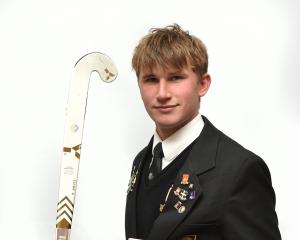
Finn Butcher has been making waves since claiming silver at last year’s canoe slalom world championships but the Otago paddler is hungry for more.
"Paris 2024 is for sure my goal," he says.
"I’m working hard to try to get there and bring a medal home."
The gruelling sport, which Butcher describes as "BMX on the water" will make its Olympic debut in Paris, replacing the K1 200m in which Lisa Carrington has been so successful.
As well as being runner-up in the extreme slalom world championship, the 27-year-old also made a world cup podium last year. In regular slalom, he won a world-ranking race in Prague and more recently, came third in a world-ranking race in Germany.
Butcher began competing when he was only 9, encouraged by family friends to enter a novice slalom race under the Shaky Bridge during the Alexandra Blossom Festival.
The Dunstan High School pupil later moved to Dunedin but found it far from ideal as a training ground — his solution was to set up gates in a pond in the Leith just before it went under George St.
Today, he spends up to half the year in Europe, competing in both regular slalom — where 3.5m-long carbon kayaks race against the clock through a series of gates suspended over the water — and extreme slalom, where athletes in 2.5m-long plastic kayaks race each other through large, inflatable gates.
The former Otago Daily Times Class Act recipient receives funding from High Performance Sport NZ and says his training includes time spent with a physiotherapist trying to become a "ninja" so he can push things technically in the boat.
"The race is around 90 sec for regular slalom and 60 sec for extreme, so a high anaerobic power is key, " he says.
"But perhaps on race day the mental component is the most important ... The best in the world are able to put everything aside and be fully in the moment when they are racing."
"I love competing and trying to figure things out, learn and get better," he says.
"The process of ... learning the different skills and working hard to improve, coupled with the unpredictable nature of the sport make it strangely addictive. I also want to make my community proud by the way that I approach life, racing and training."
That resolve could have been tested when he narrowly missed selection for the Tokyo Olympics but Butcher says knowing his friends and family would be proud of him "no matter what" helped.
"It made me think a lot about who I was as a person and an athlete, but the fact that I was in good form made me realise I didn’t need to change anything, just keep building and enjoying the process."












